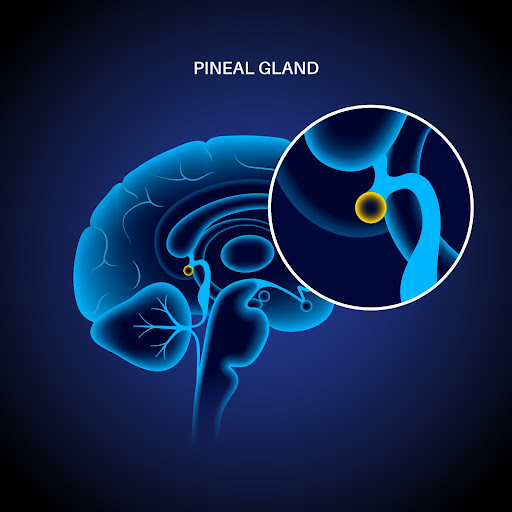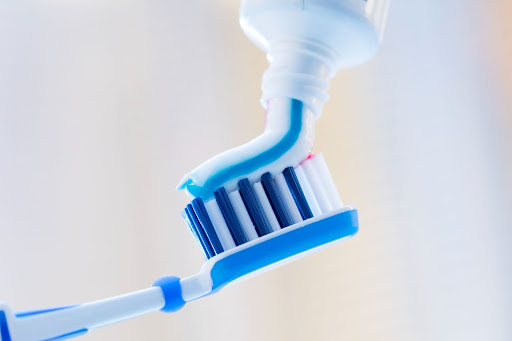How Fluoride Disrupts Sleep and What It Has to Do with the Pineal Gland

In today’s fast-paced world, sleep is considered a luxury for most of us. With the hustle and bustle of our daily lives, it’s no surprise that many of us struggle with sleep.
But, here’s the kicker, there’s more to the story, something you might not have heard about in your typical sleep advice columns: fluoride.
You see, sleep isn’t just downtime for your body. It’s not just about resting and recharging.
It’s about preserving your mental and physical health. And lately, there’s a silent player affecting your sleep quality.
The Importance of Sleep
Now, you might be scratching your head, thinking, “Why the heck are we making such a fuss about sleep?”
Well, here’s the deal: sleep isn’t just a time when your body takes a break.
Quality sleep isn’t just a nice-to-have.
It’s crucial for your mental and physical health. It’s the secret sauce that keeps you on your A-game.
Think of it as the foundation of a healthy, vibrant life. A bit like the rock-solid base of a skyscraper.
Without it, the whole structure starts wobbling.
Stress, technology’s relentless glow, and our diets laden with surprises (including the sneaky fluoride) are all playing a part in this global sleep struggle.
So, yeah, the fuss is warranted, and it’s high time we give sleep the spotlight it deserves.
The Pineal Gland: A Sleep Regulator.

The pineal gland, a small, pinecone-shaped structure located in our “third eye”, plays a vital role in regulating our sleep-wake cycle.
Think of it as your very own sleep conductor tucked away deep within your brain.
It produces a hormone called melatonin, often referred to as the “sleep hormone.”
Melatonin secretion increases in the evening, signaling to our bodies that it’s time to wind down and prepare for sleep.
As melatonin enters your bloodstream, it’s like a lullaby to your senses, inviting you to drift into the realm of dreams.
It’s the reason your eyelids become heavy, your thoughts quiet, and your breathing slows. It’s the conductor leading you into a night of restful slumber.
Conversely, in the morning, melatonin levels drop, helping us wake up and feel alert.
So having a healthy pineal gland is critical to your sleep.
The Fluoride Connection.

Now, let’s address the elephant in the room: fluoride.
Most of us are familiar with fluoride as a mineral added to toothpaste to prevent tooth decay.
But hold on to your hats because recent research has given fluoride a new role – as a potential sleep disruptor.
Here’s the nitty-gritty:
- Calcification of the Pineal Gland: Your pineal gland, that little powerhouse nestled in your brain, can accumulate calcium deposits over time.
- We call this process calcification.
- Now, fluoride has a particular fondness for calcium, and when fluoride levels start soaring, it’s like hitting the fast-forward button on pineal gland calcification.
- The result? Your pineal gland starts singing a different tune, and it’s not a lullaby.
- Reduced Melatonin Production: This calcification can throw a wrench into the works, hindering your gland’s ability to churn out melatonin effectively.
- Imagine your pineal gland as a dimmer switch – as it calcifies, it gradually turns down the melatonin power.
- Reduced melatonin levels spell trouble for your sleep routine. It’s like trying to sleep through a rock concert – restless and far from restorative.
- Disrupted Circadian Rhythms: Your pineal gland isn’t just twiddling its thumbs- it’s a master conductor of your body’s internal clock – the circadian rhythms.
When these rhythms go haywire due to fluoride-fueled calcification, your sleep patterns do the cha-cha.
Fatigue, irregular sleep, and an overall feeling of sleep dissatisfaction join the party.
So, there you have it – the inside scoop on how fluoride can play the disruptor in your sweet dreams. But don’t worry, we’re not leaving you in the dark.
There are ways to take back control of your sleep, and we’re here to guide you every step of the way.
How to Reduce Fluoride Exposure?
I get it. This intel might raise a few eyebrows, but trust me, it’s not all doom and gloom. In fact, it’s downright empowering.
You hold the reins, my friend, and you can steer your health in the right direction. So, here’s the game plan:
- Check Your Water Source: Take a peek at your drinking water. Is it playing host to fluoride? If so, don’t worry; we’ve got your back. Consider enlisting the help of a trusty water filter. It’s like putting on armor to fend off the fluoride dragon, greatly reducing your daily fluoride intake.
- Use Fluoride-Free Toothpaste: It’s time to make a small yet impactful switch. Swap your fluoride-packed toothpaste for the fluoride-free alternative.
- Plus, spread the word among your social circle– family and friends, they deserve to know too.
- Limit Processed Foods and Beverages: Processed goodies, especially those whipped up with fluoridated water, can be tricky characters.
Opt for fresh, organic, and unprocessed alternatives whenever you can. Your body will thank you for it.
See, you’ve got more power than you might think. It’s time to seize it, reduce your fluoride exposure, and set the stage for a brighter, more restful future.
Sleep Hygiene: Your Gateway to Quality Rest
Sleep hygiene is a set of practices and habits that can pave the way for a night of deep, restorative sleep.
These habits include:
- Consistent Sleep Schedule: Think of your body as this finely tuned orchestra, and your sleep schedule? Well, it’s the conductor’s baton.
- Keeping a regular sleep routine is like composing a symphony within you, harmonizing your body’s internal clock.
- The result? Easier drift-offs and waking up feeling like you’ve had a cozy catnap in a hammock.
- Creating Your Sleep Sanctuary: Your sleep haven is more than just a place to lay your head. It’s where the magic happens.
- Envision plush pillows, soft-as-a-cloud sheets, and a soft glow from dim lights. Compare that to trying to catch some Zs on a bumpy bus ride – no contest, right?
- Curbing Caffeine and Screens: Ah, caffeine, our trusty morning companion. But as the day mellows into the evening, it’s time to bid adieu to your caffeinated pals.
- And screens? They’re not the best bedtime buddies either. They mess with your body’s chill-out mode, making it harder to sail into dreamland.
- Stress Management: Stress is the unruly beast that loves to crash the sleeping party. But don’t fret; there are ways to tame it.
- From relaxation techniques to soothing bedtime rituals and even a bit of meditation – they can be your ticket to a night of uninterrupted rest.
Conclusion: Prioritizing Healthy Sleep.

Your sleep, my friend, is the cornerstone upon which you construct your days, your motivation, and your boundless vitality.
When you prioritize a well-crafted sleep routine and keep a watchful eye on your fluoride exposure, you’re setting the stage for nights filled with peaceful rest.
Wrap your head around this: quality sleep isn’t just beauty sleep.
It’s a treasure trove for your physical, mental, and even spiritual well-being. It’s the secret ingredient that makes life’s symphony harmonize beautifully.
And when you calculate the toll of sleepless nights endured over extended periods, you’ll realize that every ounce of effort invested in its care is worth its weight in gold.
Here’s to your journey toward a life that’s well-rested and gloriously vibrant.
Share the wisdom far and wide, and keep both yourself and your loved ones safe.
Warm regards,
Eric Thompson
Copyright © 2023 Pineal XT | All Rights Reserved


